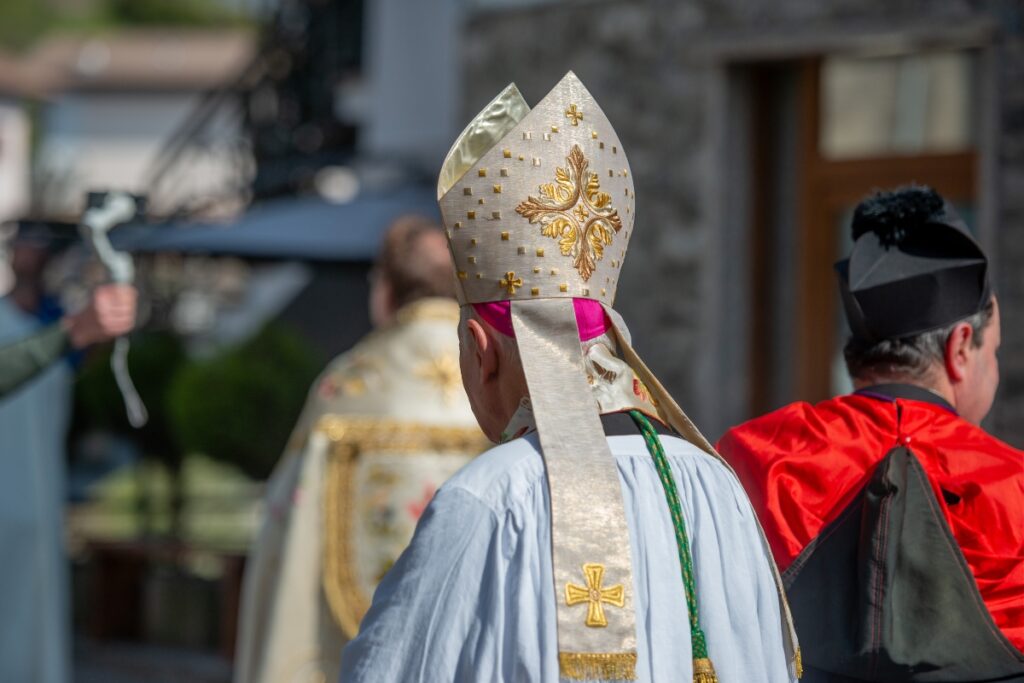Cardinals Gather Ahead of the Vote
Catholic cardinals have officially set May 7 as the start date for the conclave that will elect Pope Francis’ successor. Initially, the conclave could have begun earlier, but the cardinals decided to extend the pre-conclave period by two days to foster discussions, strengthen relationships, and deepen familiarity among themselves. Informal meetings began Monday, shortly after Pope Francis’ funeral, amid a flurry of media attention outside Vatican walls.
In the early sessions, emotions ranged from hope to cautious optimism. Argentine Cardinal Ángel Sixto Rossi expressed a desire for unity, reflecting a broad sentiment among many electors who emphasized the need to maintain harmony within the global Catholic community. However, some cardinals, particularly conservatives, have voiced concerns about the church’s direction, suggesting a need to return to a traditional doctrinal focus rather than continuing Francis’ emphasis on social justice issues and outreach to marginalized communities.
British Cardinal Vincent Nichols emphasized that unity remains essential during this period of transition. “The role of the pope is to essentially hold us together,” he said, stressing that overcoming divisions within the church is vital for its future stability and growth.
The Composition and Challenges of the Electors
The College of Cardinals that will decide the next pope reflects a wide range of global perspectives and cultural backgrounds. Of the 135 cardinals eligible to vote, 108 were appointed by Pope Francis himself during his twelve-year papacy. The decision to appoint cardinals from diverse and often underrepresented regions has introduced fresh perspectives but also created challenges, as many of these cardinals have had little prior interaction with one another.
Nichols acknowledged the relative unfamiliarity among the electors, noting that several were only appointed in December. “We’ve got all week,” he remarked, indicating that the extended meeting time will be crucial for building necessary consensus before the formal voting begins.
Only cardinals under 80 years old are allowed to vote, and it remains uncertain if all 135 eligible cardinals will participate. Health concerns have already led at least one Spanish cardinal to opt out. These absences could influence the dynamics of voting, as every ballot carries weight in the secretive and deeply spiritual process.
Adding complexity, a point of controversy surrounds Cardinal Angelo Becciu, who was convicted of finance-related crimes in 2023. While Becciu maintains he is entitled to vote, Vatican statistics classify him as a “non-elector.” The question of his participation remains unresolved following discussions among the cardinals on Monday, highlighting internal legal ambiguities.
Candidates and Global Perspectives
Several figures are already being viewed as potential candidates to succeed Francis. Italian Cardinal Matteo Zuppi, a known contender with a reputation for pastoral sensitivity and dialogue, displayed humor as he faced a crowd of reporters eager for insights. Despite the media buzz surrounding potential favorites, few cardinals are publicly committing to particular names, instead stressing the spiritual nature and solemnity of the decision ahead.
African cardinals could play a significant role in shaping the outcome. Nigerian Cardinal John Olorunfemi Onaiyekan, who, despite being too old to vote, noted that African representatives have maintained a strong, unified voice, particularly on controversial issues like blessings for same-sex couples. Analysts believe the 18 African electors could help shape a more traditionalist outcome by resisting candidates viewed as overly progressive.
From Asia, Indian Cardinal Anthony Poola emphasized a spirit of unity among the cardinals but also acknowledged that surprises could emerge once voting begins. Poola, a relatively young elector appointed by Francis, stated that cardinals seek a leader who embodies the qualities of Saint Peter — strength, compassion, and guidance for a worldwide flock.
Latin America also brings significant influence to the gathering. Cardinal Rossi of Argentina voiced hopes that the next pope would continue Francis’ legacy of mercy, charity, and faith. Yet he also admitted to feeling overwhelmed by the enormity of participating in such a historic decision, humorously describing himself as “afraid” when asked about his emotions ahead of his first conclave.
Expectations for the Conclave
While ideological differences certainly exist among the cardinals, there remains a shared understanding that the election must conclude efficiently and decisively. Venezuelan Cardinal Baltazar Enrique Porras Cardozo predicted that the conclave could produce a new pope within two to three days once voting begins, citing the urgency and seriousness that the moment demands.
Ultimately, cardinals from across continents will aim to select a leader capable of balancing unity with the diverse expectations of a global Catholic Church. With the world’s eyes turned to the Vatican, the May 7 conclave marks a pivotal moment not only for the leadership of 1.3 billion Catholics but also for the future direction of one of the world’s most influential religious institutions.


